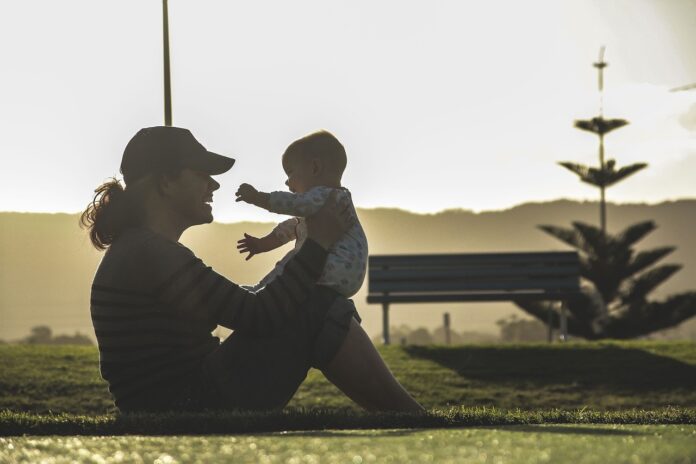A significant study conducted by the University of Cambridge researchers discovered no difference in psychological well-being or the quality of family ties between children born through assisted reproduction and those born naturally at the age of 20.
A new study suggests that informing children about their biological origins before they enter school might be beneficial to family connections and successful adjustment.
Having children in different or novel methods does not disrupt the functioning of families. What matters is a strong desire to have children.
The study, conducted by researchers at the University of Cambridge, is the first to look at the long-term effects of different types of third-party assisted reproduction on parenting and child adjustment, as well as the first to look at the effect of the age at which children were told they were conceived through egg donation, sperm donation, or surrogacy.
The study suggests that the lack of a biological connection between children and parents in assisted reproduction families does not affect the formation of positive bonds or psychological adjustment in adulthood.
These findings are consistent with prior assessments conducted at the ages of one, two, three, seven, ten, and fourteen.
The findings challenge previously held beliefs that children born through third-party assisted reproduction are disadvantaged in terms of happiness and family connections because they lack a biological tie to their parents.
Susan Golombok, Professor Emerita of Family Research and former Director of the Centre for Family Research, University of Cambridge, who led the study, said, “Despite people’s concerns, families with children born through third-party assisted reproduction – whether that be an egg donor, sperm donor or a surrogate are doing well right up to adulthood.”
They discovered, however, that moms who started telling their children about their biological beginnings in their preschool years had better favorable interactions with them, as measured by an interview at age 20. The mothers had lower levels of worry and sadness.
The majority of the parents who had disclosed did so by the age of four, and the youngster handled the news well. This shows that while children are young, it is good, to be frank with them about their origins.
Furthermore, by the end of this 20-year study, mothers who had revealed their child’s origins by the age of seven had slightly higher positive scores on questionnaire measures of family relationship quality, parental acceptance, and family communication. For example, only 7% of women who disclosed before the age of seven reported difficulty in family connections, compared to 22% of those who disclosed after the age of seven.
Young adults who were told about their origins before age seven scored slightly higher on questionnaire measures of parental acceptance, communication, and psychological well-being. They were also less likely to report problems on the family relationships questionnaire; whereas 50% of young adults told after the age of 7 reported such problems, only 12.5% of those said before the age of 7 reported such problems.
Golmobok said, “There does seem to be a positive effect of being open with children when they’re young – before they go to school – about their conception. It’s something that’s been shown by studies of adoptive families too.”
The University of Cambridge researchers followed 65 UK families with children born through assisted reproduction – 22 through surrogacy, 17 through egg donation, and 26 through sperm donation – from infancy to early adulthood (20 years old). Over the same period, they compared these families to 52 UK on his conception households.
He said, “The assisted reproduction families were functioning well, but where we did see differences, these were slightly more positive for families who had disclosed.”
Young adults were generally unconcerned about their biological origins. One young adult born through surrogacy said, “It doesn’t faze me, really, people are born in all different ways, and if I was born a little bit differently, that’s OK.”
They embraced the method of their conception as it made them feel special, and they had no negative comments about it.
Researchers discovered that mothers who received sperm donations reported more good family relationships than mothers who received eggs. They speculate that this might be caused by certain mothers’ concerns over their child’s lack of a genetic connection. The young adults’ opinions about the caliber of familial ties did not reflect this.
The researchers discovered that young adults born through sperm donation reported less effective family communication than those born through egg donation. This might be explained by the greater secrecy around sperm donation compared to egg donation, which is frequently caused by men’s greater reluctance than mothers to tell their children they are not their biological parent and their more remarkable unwillingness to discuss it after they have.
Researchers discovered that only 42% of sperm donor parents reported by the age of 20, compared to 88% of egg donation parents and 100% of surrogate parents.
He also said, “Today, there are so many more families created by assisted reproduction that it seems quite ordinary. But when we started this study twenty years ago, attitudes were very different. It was thought that having a genetic link was very important, and with one, relationships would work well.”
This research indicates that having children in different or novel ways does not interfere with how families function. Having children trumps everything; that’s what matters.
This research was funded by a Wellcome Trust Collaborative Award.
Journal Reference:
- Catherine Jones, Susan Golombok, et al. A Longitudinal Study of Families Formed Through Third-Party Assisted Reproduction: Mother–Child Relationships and Child Adjustment From Infancy to Adulthood. Developmental Psychology. DOI: 10.1037/dev0001526
